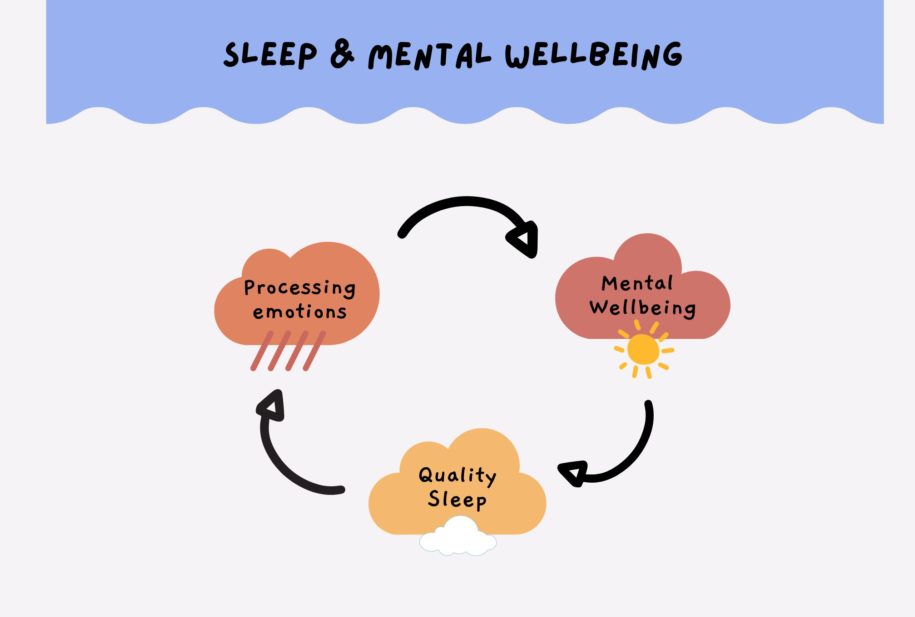The correlation between sleep and mental health has been under heavy investigation for the past decade or so, with science identifying some very interesting and astonishing correlations between the two. In fact a whopping 50% to 80% of mental health sufferers also suffer with chronic sleep problems.
But is this all just a coincidence or is there more to this story?
Sleep actually helps our brain process all the information we have acquired across the day, which helps us improve our overall mental-wellbeing. Below I have outlined additional information on the link between sleep and our mental health.
- We process our emotions during sleep. During REM sleep we dream, and it is thought to be this stage of sleep where we process our day’s thoughts, memories and you guessed it, our emotions. Not getting enough sleep can hinder this process and reduce our mental and emotional health.
- Lack of sleep results in mental fatigue. We all know that a lack or poor sleep makes us feel groggy and tired throughout the next day, but it also impacts our overall mood, stress levels and hinders our ability to understand and retain information. Research has shown that prolonged sleep difficulties can worsen a host of mental health problems such as anxiety,bipolar disorder and ADHD.
- On the other hand, mental health disorders such as anxiety disorders, depression, ADHD, bipolar disorder and schizophrenia, can potentially cause sleep disruptions and lead to our sleep being fragmented and thus completely throw off our body’s circadian rhythm, resulting in a vicious cycle of sleep disorders, which can cause mood swings, problems with memory, excessive daytime sleepiness, microsleeps (which can be deadly when say driving), and even short bursts of unconsciousness.
- Sleep disorders contribute to mental health disorders and mental health disorders contribute to sleep disorders. Although we don’t know what often starts first, science has proven that the 2 do exacerbate each other and usually addressing one will help the other considerably. Sleep disorders should not be taken lightly and are in fact considered a medical condition. Many sleep disorders do in fact stem from and correlate with mood-related conditions, such as the ones mentioned above. PTSD and childhood trauma can also contribute to sleep disorders, but it is also good to know that some medications (such as antidepressants) can have significant side effects that impact a person’s sleep.
- And as mentioned above, sleep deprivation can and does affect out mood. A lack of sleep affects our health and wellbeing and our mood is no different. A lack of sleep can lead to disruptions in our everyday life and often makes us feel groggy, feeds mood-swings, causes excessive daytime drowsiness and causes us to suffer from delayed reaction times.
There are things we can do to help improve our quantity and quality of sleep. Check out my 6 tips here to get you started.
